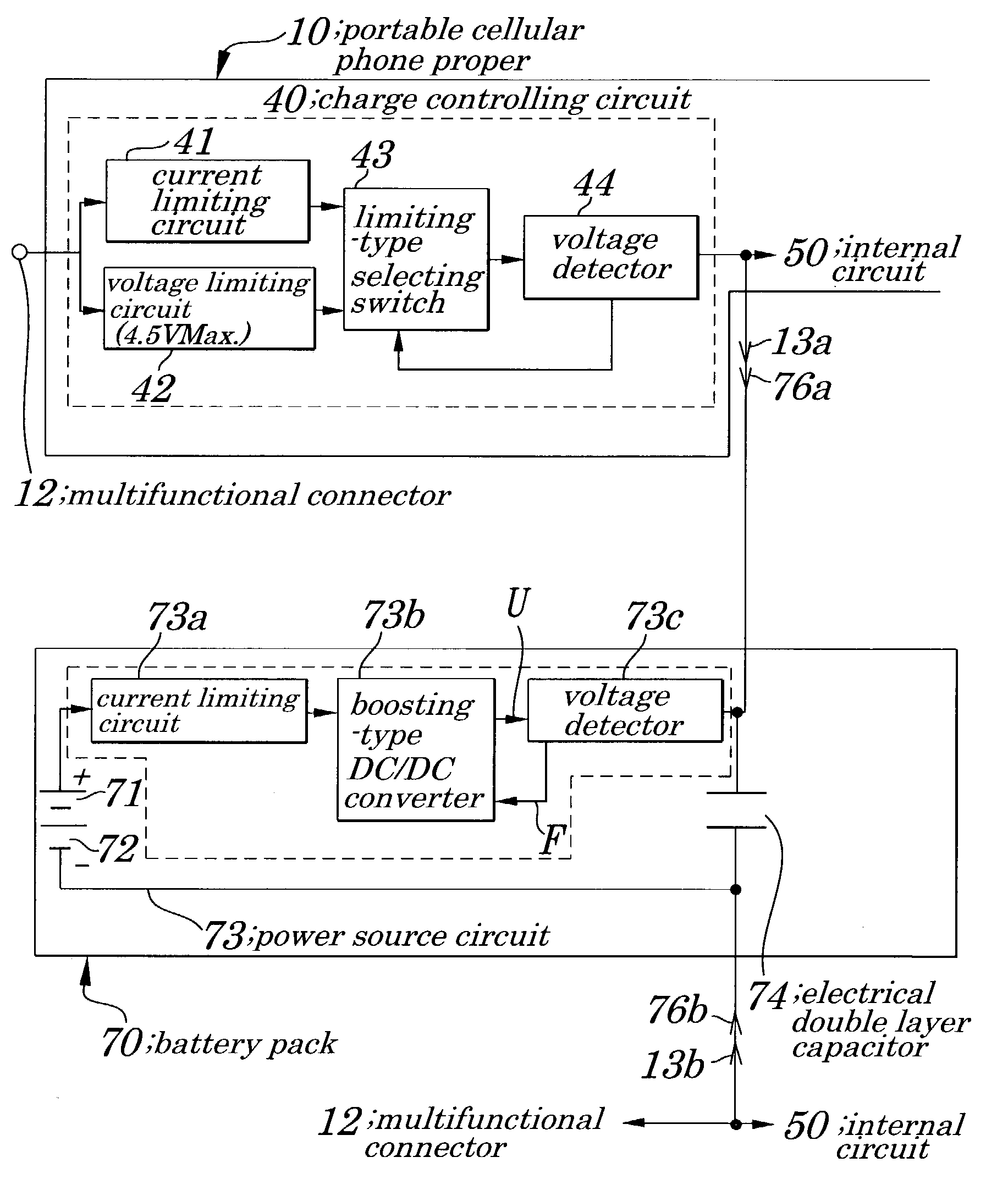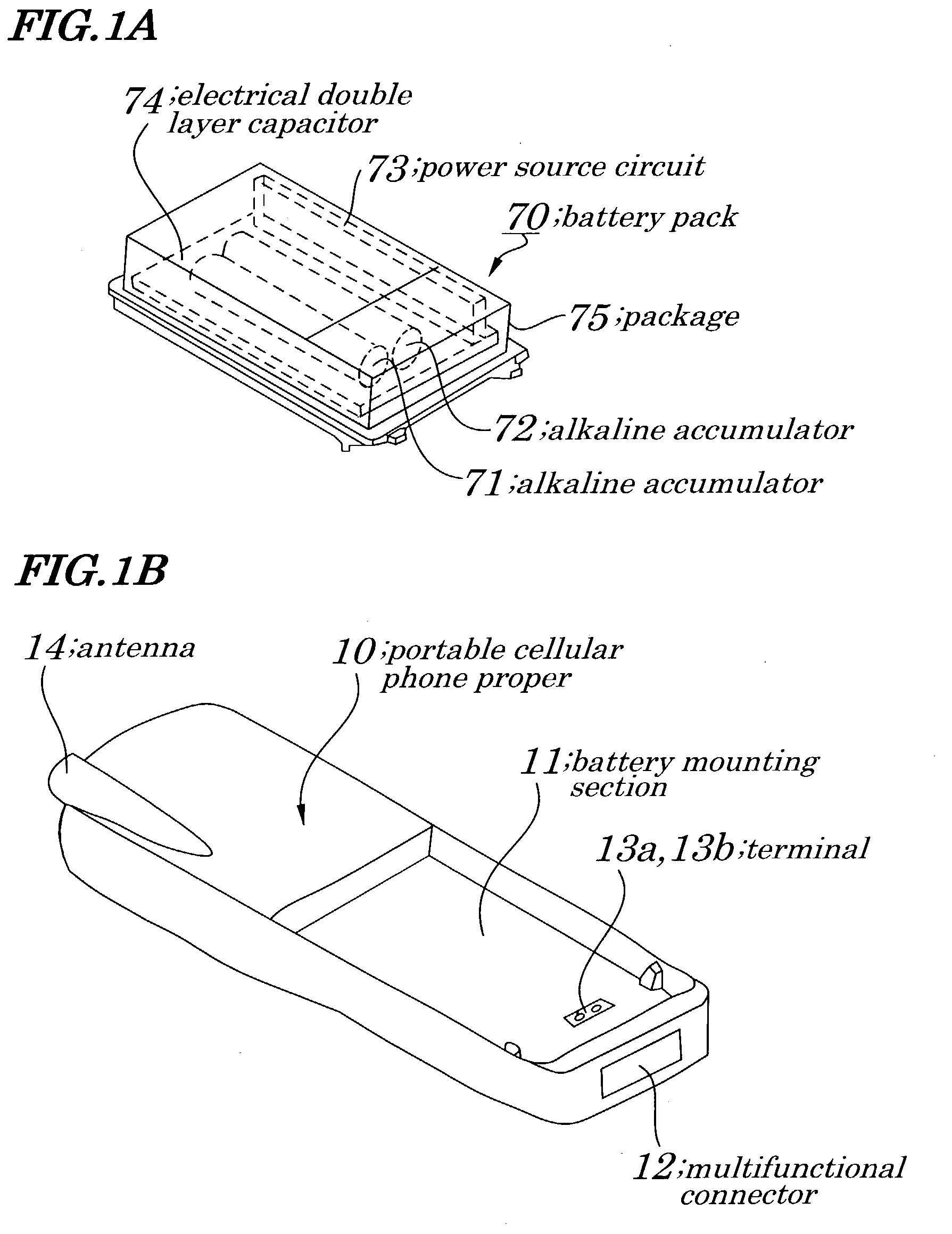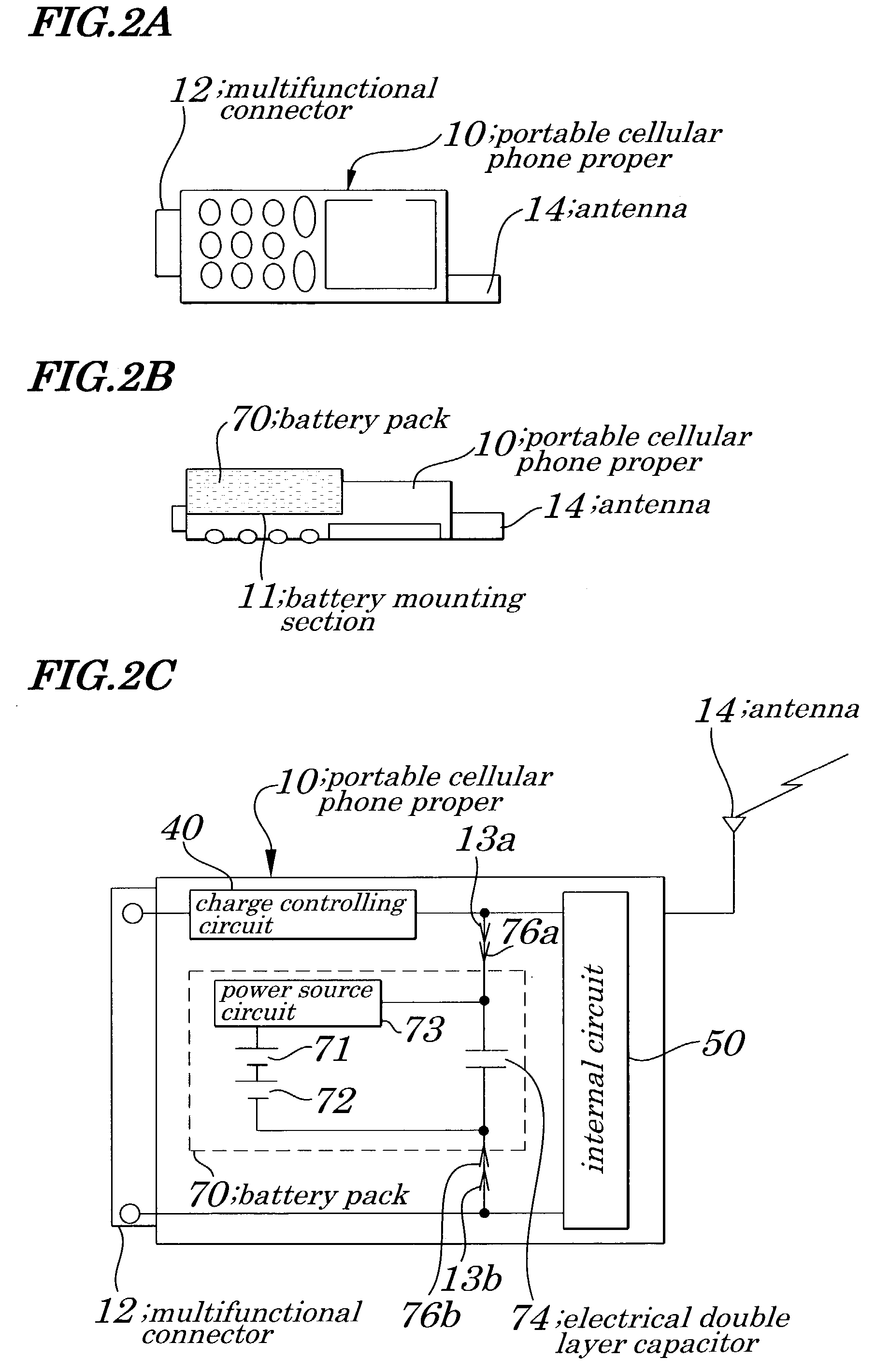Battery pack
a battery pack and battery technology, applied in the field of batteries, can solve the problems of b>1/b> not being able to operate normally, the control circuit b>40/b> cannot operate normally, and the portable cellular phone cannot be operated, etc., to achieve the effect of simplifying the configuration, simplifying the configuration, and maximizing the capacity of the fuel cell
- Summary
- Abstract
- Description
- Claims
- Application Information
AI Technical Summary
Benefits of technology
Problems solved by technology
Method used
Image
Examples
first embodiment
[0090]FIG. 1A is a perspective view showing a battery pack 70 and FIG. 1B is a perspective view showing a battery mounting section 11 of a portable cellular phone proper 10 according to a first embodiment of the present invention. A battery pack 70 of the first embodiment, as shown in FIG. 1A is made of alkaline accumulators 71 and 72, a power source circuit 73, an electrical double layer capacitor 74, and a package 75 to house them, and is placed in a portable cellular phone proper 10 instead of conventional detachable dedicated secondary battery 20 as shown in FIG. 12A. FIGS. 2A, 2B, and 2C are diagrams illustrating the portable cellular phone with the battery pack 70 shown in FIG. 1A being placed in the portable cellular phone proper 10 and the battery pack 70 of FIGS. 1A and 1b. FIG. 2C is a circuit diagram showing electrical configurations of the portable cellular phone of FIGS. 1A and 1B. In FIGS. 2A to 2C, same reference numbers are assigned to components having same function...
second embodiment
[0097]FIGS. 5A and 5B are perspective views showing a battery pack 70A and a battery mounting section 11 of a portable cellular phone proper 10 according to a second embodiment of the present invention. In FIGS. 5A and 5B, same reference numbers are assigned to components having same functions as those in FIGS. 1A and 1B. In the battery pack 70A of the second embodiment, as shown in FIG. 5A, a power source circuit 73 is removed from the battery pack 70A and an alkaline accumulator 77 is additionally provided. Other components are same as those in FIGS. 1A and 1B and their description is omitted for brevity.
[0098]FIGS. 6A, 6B and 6C are diagrams illustrating a portable cellular phone in which its battery pack 70A shown in FIG. 5A is placed in a portable cellular phone proper 10 (FIG. 5B) of the second embodiment of the present invention. In FIGS. 6A, 6B, and 6C, same reference numbers are assigned to components having same functions as those in FIGS. 2A, 2B, and 2C. As shown in FIG. ...
third embodiment
[0101]FIGS. 7A and 7B are perspective views showing a battery pack 70B and a battery mounting section 11 of a portable cellular phone proper 10 according to a third embodiment of the present invention. In FIGS. 7A and 7B, same reference numbers are assigned to components having same functions as those in FIGS. 1A and 1B and description of some parts have been omitted. In the battery pack 70B of the third embodiment, as shown in FIGS. 7A and 7B, instead of alkaline accumulators 71 and 72 shown in FIGS. 1A and 1B, a fuel cell 78 is provided. Other configurations are same as those in FIGS. 1A and 1B.
[0102]FIGS. 8A, 8B, and 8C are diagrams illustrating a portable cellular phone in which its battery pack 70B shown in FIG. 7A is placed in the portable cellular phone proper 10 of the first embodiment of the present invention. In FIGS. 8A, 8B, and 8C, same reference numbers are assigned to components having same functions as those in FIG. 2. As shown in FIG. 8C, in the battery pack 70B, the...
PUM
| Property | Measurement | Unit |
|---|---|---|
| electromotive force | aaaaa | aaaaa |
| voltage | aaaaa | aaaaa |
| voltage | aaaaa | aaaaa |
Abstract
Description
Claims
Application Information
 Login to View More
Login to View More - R&D
- Intellectual Property
- Life Sciences
- Materials
- Tech Scout
- Unparalleled Data Quality
- Higher Quality Content
- 60% Fewer Hallucinations
Browse by: Latest US Patents, China's latest patents, Technical Efficacy Thesaurus, Application Domain, Technology Topic, Popular Technical Reports.
© 2025 PatSnap. All rights reserved.Legal|Privacy policy|Modern Slavery Act Transparency Statement|Sitemap|About US| Contact US: help@patsnap.com



